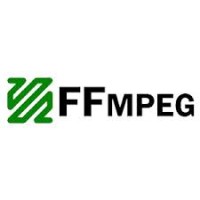FFmpeg is an awesome collection of open-source tools that can record and stream video and audio. However, it can also convert multimedia the files to different formats.
FFmpeg includes libavcodec audio/video codec library in it.Today, in this article i am going to show you how to install FFmpeg .
Note that I did all the following steps on a CentOS server.
The first thing that you need to do is to add the DAG repository, to add it do the following steps:
Open a file /etc/yum.repos.d/dag.repo and add the following lines:
[dag] name=DAG RPM Repository baseurl=http://apt.sw.be/redhat/el$releasever/en/$basearch/dag gpgcheck=1 enabled=1
Once done , Save and close the file.
To successfully use the DAG repository with yum tool, you need to add DAG’s GPG key:
rpm --import http://apt.sw.be/RPM-GPG-KEY.dag.txt
Now DAG is setup, it’s good to update all your packages.
yum update
This could potentially upgrade, install, or replace various packages that may or may not be very important to you. Make sure you carefully look through that list and do any essential preparations before telling yum that it can proceed.
Installing – FFmpeg
Now you are ready to install FFmpeg with yum.
yum install ffmpeg
Now copy ffmpeg.so extenstion under php extensions directory
cp /srv/build/ffmpeg-php-0.6.0/.libs/ffmpeg.so /path/to/php /extemsionmodules/
Add extension=ffmpeg.so to php.ini file you can find this extension under ./lib/ffmgeg.so
nano /path/to/php.ini
Add below lines at the end of php.ini file
[ffmpeg] extension=ffmpeg.so
Now open yum.conf nano /etc/yum.conf and add ffmpeg* in exclude line.
nano /etc/yum.conf exclude= ffmpeg*
Verify the status of ffmpeg extension on a PHP info web page or from command line as given below:
php -i | grep ffmpeg php -m | grep ffmpeg
After successfully install FFmpeg, let’s check the version installed on system:
ffmpeg -version
Here is the list of few ffmepg basic command options:
fmpeg -version: show version ffmpeg -formats: show available formats ffmpeg -codecs: show available codecs ffmpeg -decoders: show available decoders ffmpeg -encoders: show available encoders ffmpeg -bsfs: show available bit stream filters ffmpeg -protocols: show available protocols ffmpeg -filters: show available filters ffmpeg -pix_fmts: show available pixel formats ffmpeg -layouts: show standard channel layouts ffmpeg -sample_fmts: show available audio sample formats
Done.

